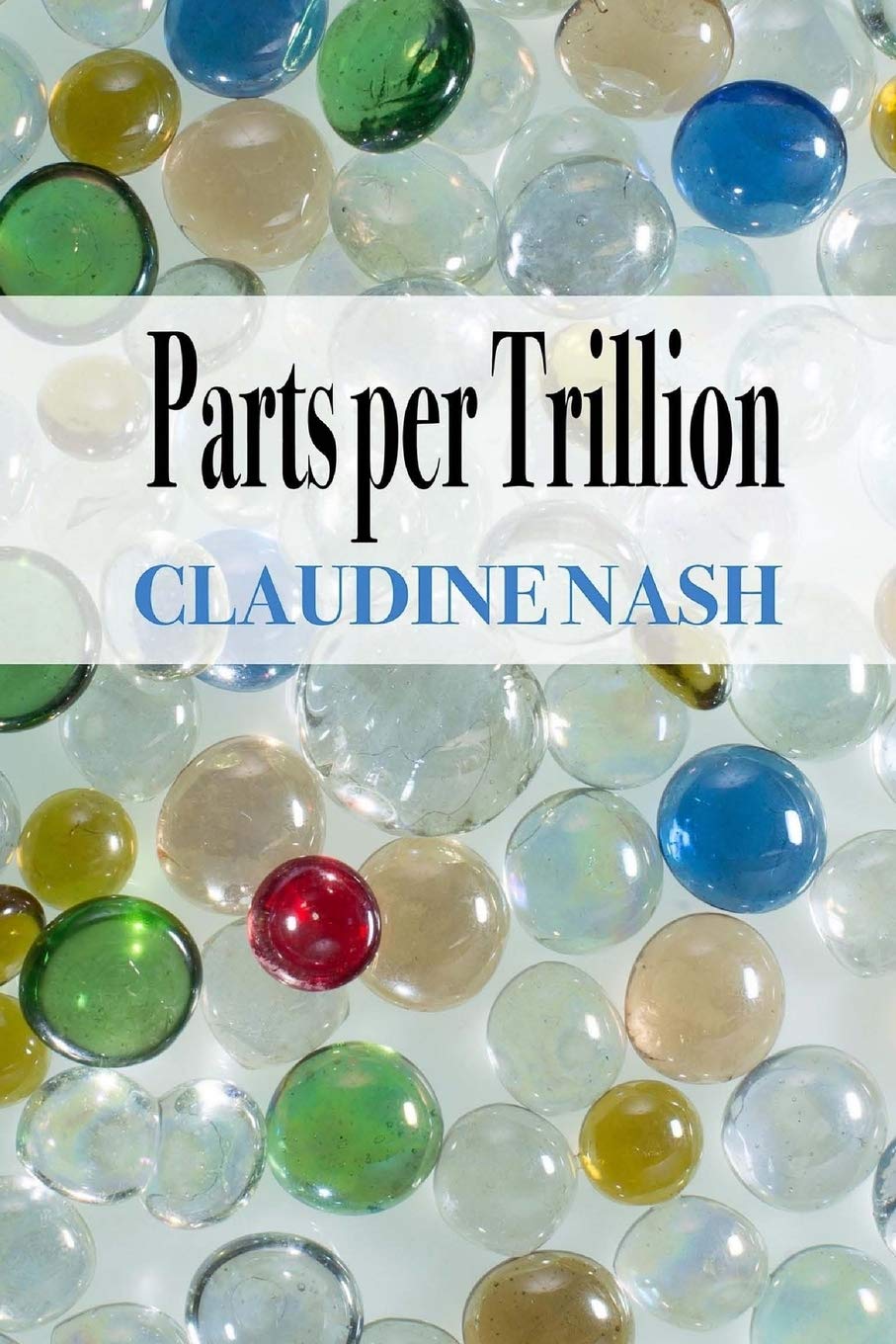Claudine Nash’s poetry collection Parts per Trillion contains themes easily accessible to everyone who has endured a time of loss. Her language is simple, yet her writing is pervaded with a wealth of imagery. It is striking in its conveyance of intimacy and sensuality. It assists the reader on a journey through the deep paths one must follow through the journey of longing: “As the postman approaches…I will be wearing my beige bathrobe, inspecting the vents for the aroma of electricity, certain that it is leaking from your years-old heartbeat archived in some long forgotten space (“Parts per Trillion,” p. 18).
Her powerful, rich vignettes that introduce the poem, “The Unanswered,” bring the theme of loss floating to the surface in just the way it feels, like brokenness. The loss is piercing: “You can search the negative space around and between for weeks without end and still never see it.” (“The Unanswered,” p. 40). The poem comes to a near devastating conclusion: “And for better or worse, the headstones aren’t talking.” (“The Unanswered,”, p. 41).
Nash speaks to us of those losses for which we long, of those things that we have lost which we are reluctant to let go of, to free us so that we can move into liberation. The journey that Nash has taken us on in Parts per Trillion, the journey through longing and loss and the challenge of setting those losses free, comes to a satisfying conclusion in the ending of the book: “You cleared a field where my thoughts refused to grow…thinned the teeming rows of Sweet William when the seedlings sprouted tenses. Now I return in the hour after sunrise to tend a thousand forming phrases, I gather a trillion transformed words.” (“You Cleared A Field,”p.75). And finally, there is Nash’s affirmation of liberation, of releasing those things to which, in loss and in grief, we hold to so fast. In doing so, we find a new voice, a voice of our true self: “It stirs upon waking, it hums in hopeful resistance, this self that is trying not just to live, that true voice that dares to thrive” (“That True ‘Voice,’”, p. 76).
Parts per Trillion is universally relevant, as these are themes which touch every human life. Nash acknowledges the deep pain of loss while also encouraging movement to a place of release, when the one who has lost cannot let go of what has been lost. Nash’s theme of liberation calls forth the reader into this freedom, and it is for this reason that this book is well worth an investment of anyone’s time.
Claudine Nash is a poet and psychologist in New York who has produced several books, among them The Problem with Loving Ghosts (2014) and The Wild Essential (2017). The book reviewed here, Parts per Trillion, was published in 2016 and was her first full-length collection. It contained many of the poems from her earlier chapbook, The Problem with Loving Ghosts.






